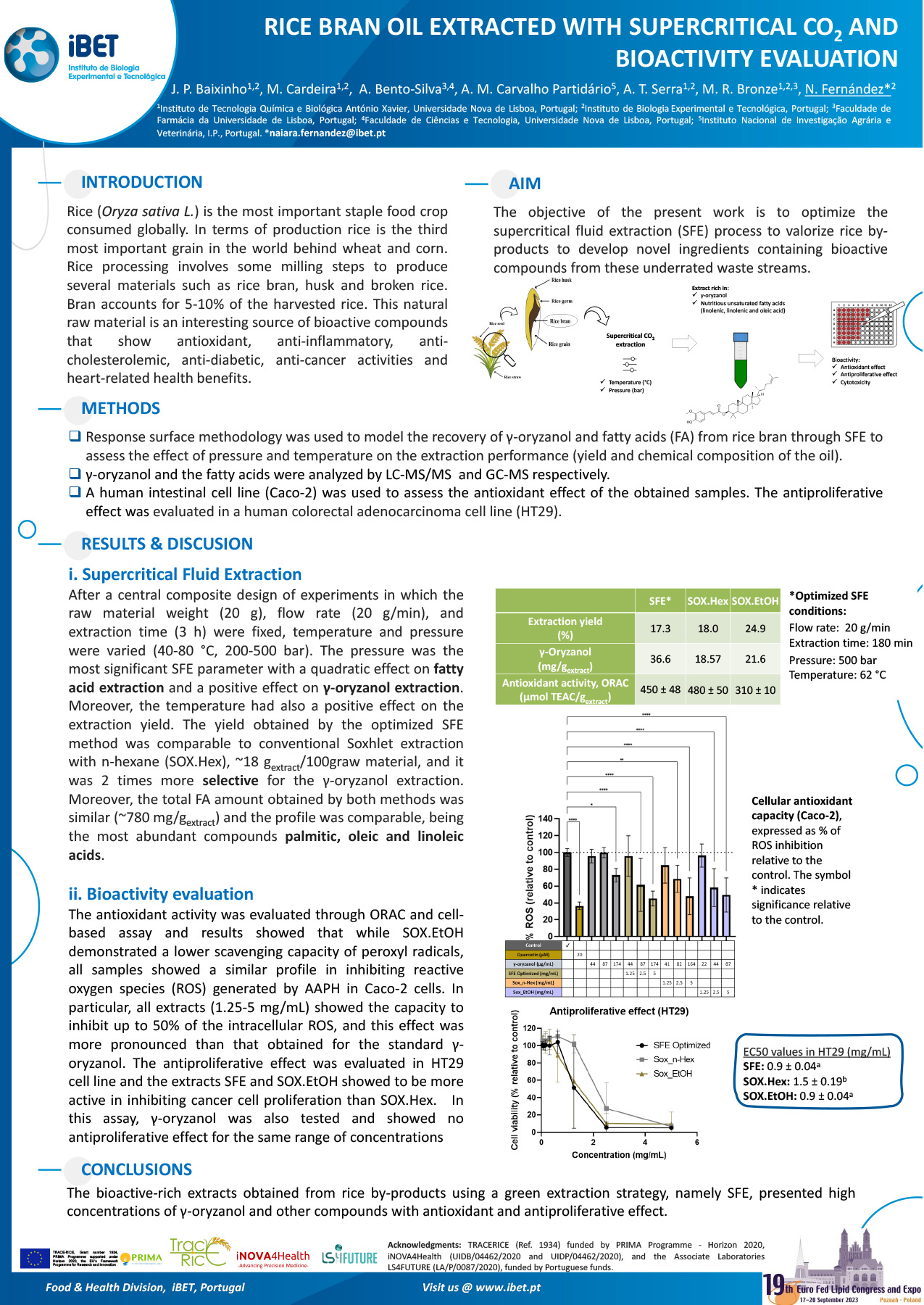Rice (Oryza sativa L.) is the most important staple food crop consumed globally. In terms of production rice is the third most important grain in the world behind wheat and corn. Rice processing involves some milling steps to produce several materials as rice bran, husk and broken rice. Bran accounts for 5-10% of the harvested rice. This study aims to contribute to the valorization of rice by-products, on the extraction and development of novel bioactive ingredients. Furthermore, the potential benefits on human health are explored through cell-based assays.
We present an efficient supercritical CO2 extraction (sc-CO2) process to obtain rice bran oil rich in γ-oryzanol and fatty acids. After a central composite design of experiments in which the raw material weight (20 g), flow rate (20 g/min), and extraction time (3 h) were fixed, temperature and pressure were varied (40-80 °C, 200-500 bar). The extraction yield obtained by the optimized sc-CO2 method was comparable to conventional Soxhlet extraction with n-hexane (SOX), ~18 gextract/100graw material, and it was 2 times more selective for the γ-oryzanol extraction. Moreover, the fatty acid profile obtained by both methods was similar and the most abundant compounds were palmitic, oleic and linoleic acids.
A human intestinal cell line (Caco-2) was used to assess the antioxidant effect of the obtained samples. The extracts showed the capacity to scavenge up to 50% of the intracellular reactive oxygen species generated by AAPH in non-toxic concentrations (5 mg/mL). Moreover, the anticancer potential was evaluated in a human colorectal adenocarcinoma cell line (HT29). Sc-CO2 extract presented a higher antiproliferative effect than the SOX (EC50 0.9mg/mL vs 1.5 mg/mL). This approach allowed the isolation of bioactive-rich extracts from rice by-products with promising health benefits.
Acknowledgments: TRACERICE (Ref. 1934) funded by PRIMA Programme – Horizon 2020, iNOVA4Health (UIDB/04462/2020 and UIDP/04462/2020), and the Associate Laboratories LS4FUTURE (LA/P/0087/2020), funded by Portuguese funds.
